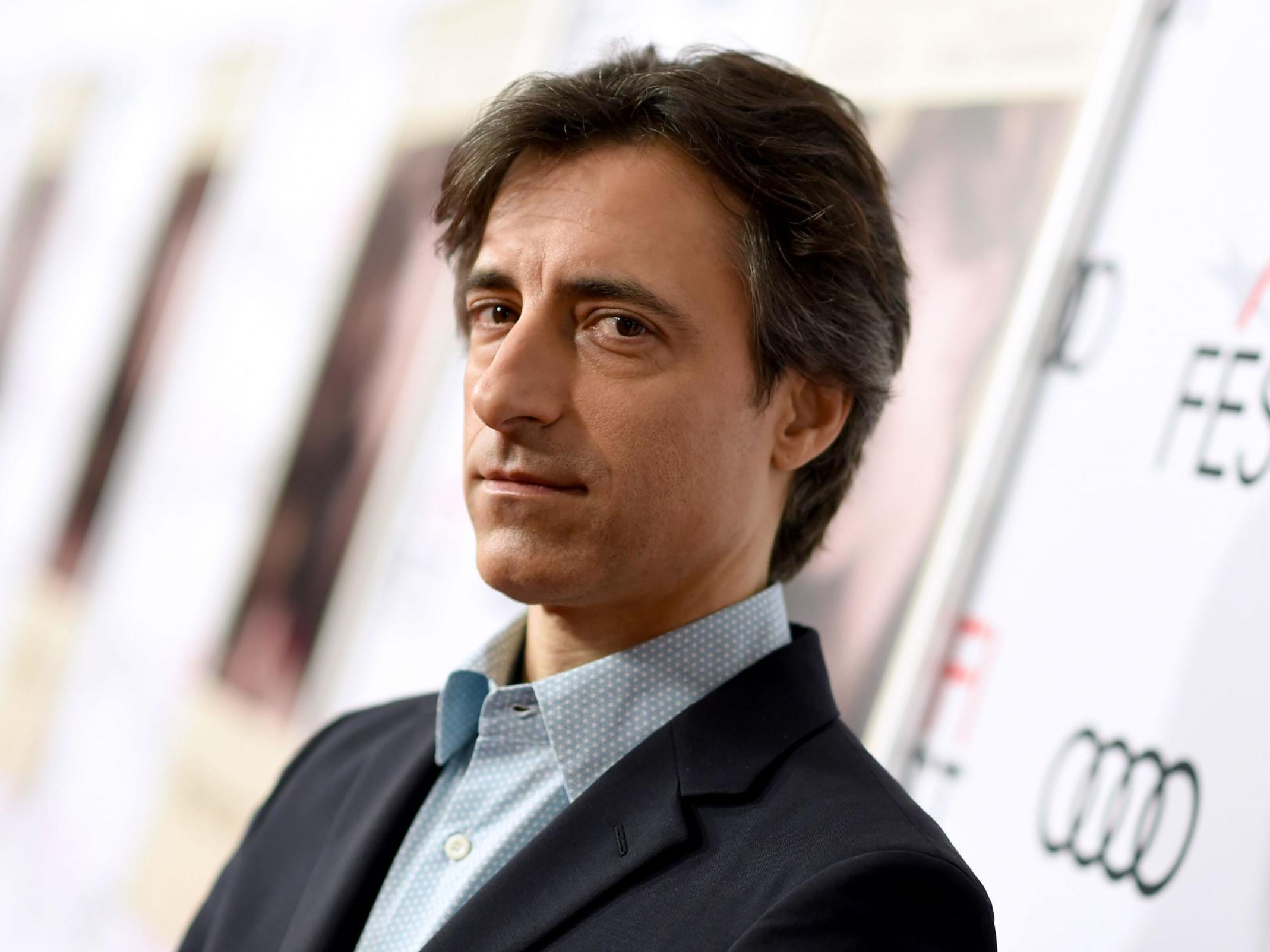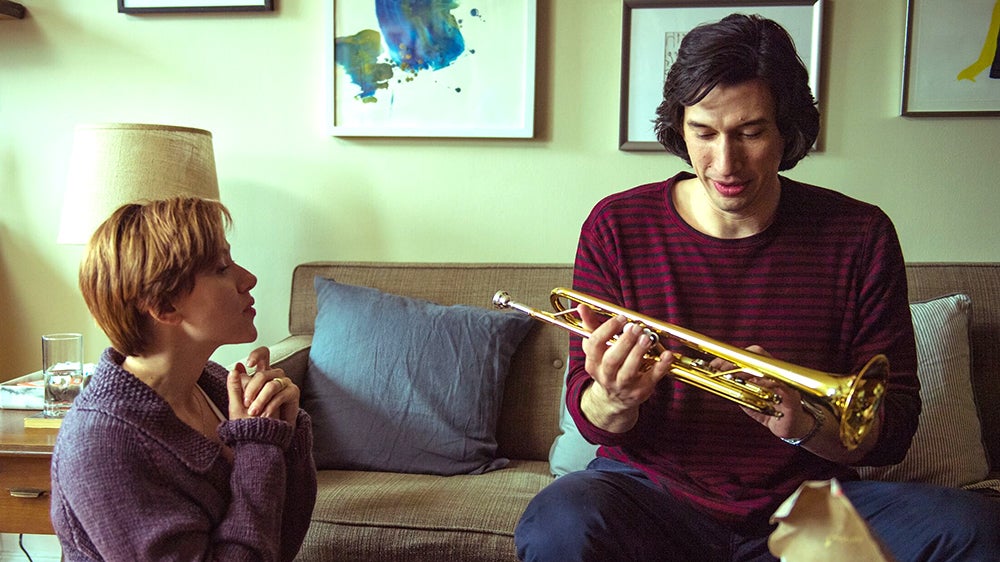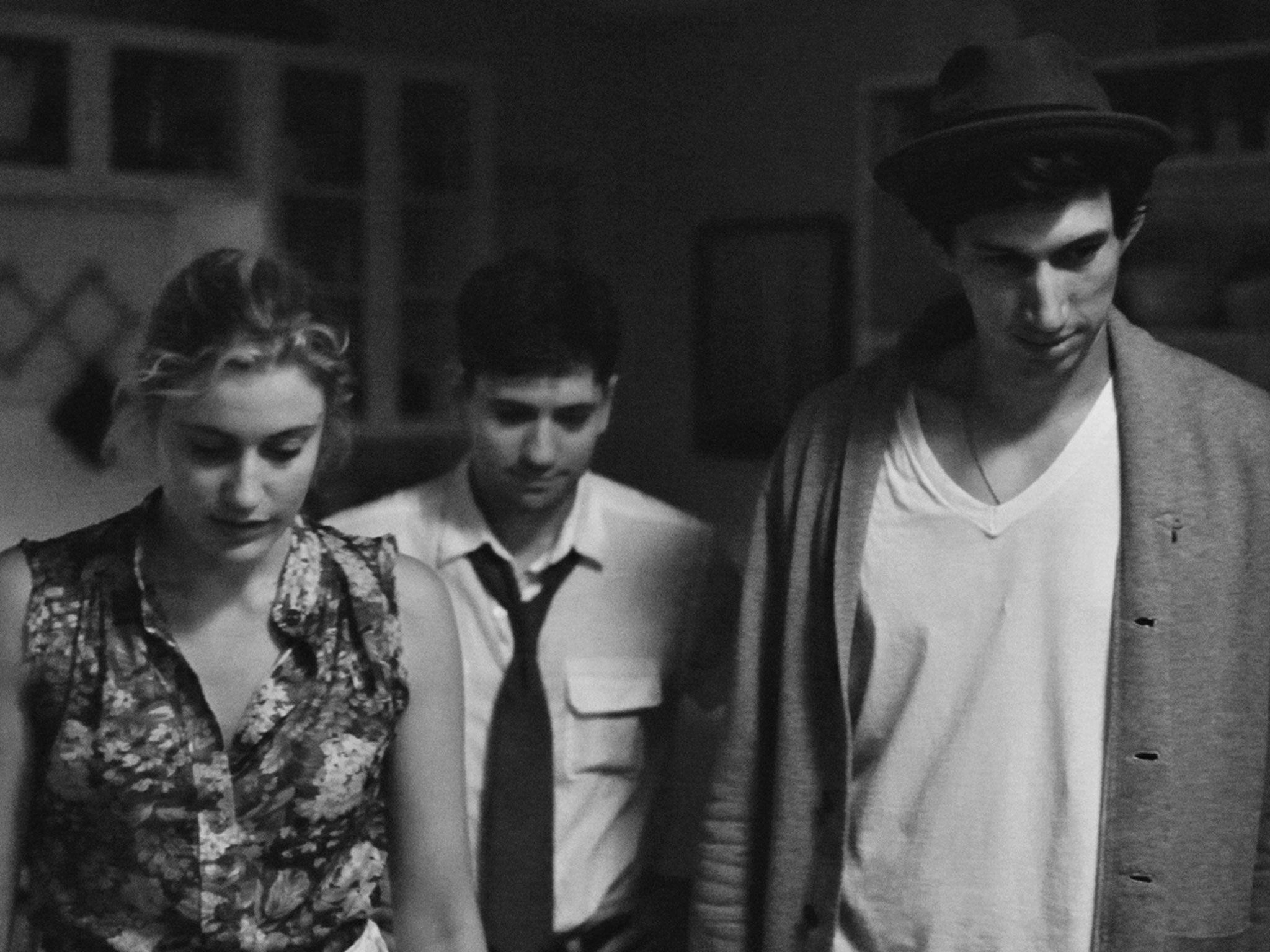Noah Baumbach: ‘Marriage Story is not about my marriage in any way’
The ‘Frances Ha’ director’s new film follows a couple’s fraught divorce and the battle for custody of their young son. He talks to Alexandra Pollard about the pitfalls of divorce lawyers, the importance of perspective, and why his writing improved because of his partner, Greta Gerwig


Noah Baumbach has spent his whole career denying that his films are about himself. “The movie’s a work of fiction,” said the writer-director in 2005, when people pointed out that both he and The Squid and the Whale’s teen protagonist had been told of their parents’ divorce during a family conference. “None of it is autobiographical,” he said of 2014’s While We're Young, a film about a middle-aged filmmaker having a midlife crisis.
As for Marriage Story – his latest film, which follows the tangled divorce proceedings of a once happily married couple and has just been nominated for a stack of Golden Globes – yep, you guessed it. “It’s not about my marriage in any way.” The 50-year-old, dressed in dark blue cords and a matching jacket, is sipping mint tea in a London hotel room. He has a jittery, breathless way about him – a little like a baritone Woody Allen – and jolts from one thought to another, often before the first has taken shape.
Baumbach’s marriage was to actor Jennifer Jason Leigh, who starred in his witty, downbeat 2007 drama Margot at the Wedding. In 2010, seven months after the birth of their son Rohmer, Leigh filed for divorce. But that, he says, is where the similarities end. Yes, he showed his ex-wife the script for Marriage Story, and sent her the movie, but only because he was aware of what people would think. “It was really just knowing that people can’t help but draw parallels,” he says, “just so that she knows what it is. I wanted her to know, to see it early on, for that reason.”
Would it have affected things if Leigh hadn’t liked it? “Well I mean, it’s like showing it to anybody. It’s not like there’s anything that anyone could object to, outside of from a creative standpoint. So if you get a good creative note, you get a good creative note.”
The break-up at Marriage Story’s centre is knotty and nuanced, a mystifying mix of hate and love. At first, Charlie (Adam Driver, as hulking and adroit as ever) and Nicole (Scarlett Johansson) – both actors who met working in theatre – are determined that they’re going to do it without lawyers, and stay friends to boot. That doesn’t last long.
Nicole breaks first. Moving from New York to LA with their son Henry, she recruits high-profile lawyer Nora (Laura Dern), a pristine woman of ambiguous integrity. Charlie follows suit, hiring and firing one lawyer before ending up with Jay (Ray Liotta), a brash bulldozer with money coursing through his veins. The lawyers store up intimate information like ammunition and fire it at each other, their clients watching on.
Nicole and Charlie, says Baumbach, are “two people who are articulate, they’re performers, they’re creative people, and they find themselves in a situation where they have no voice. They’re being spoken about, and to, by these avatars that are now the performers. It’s almost like the lawyers are playing them.”

A later scene, in which Nicole and Charlie have a blazing row, arrives “after they’ve been silenced”, he adds. “I almost saw it as people trying to find language again, but the emotional context of it is so complex and alive and fractured and they’re trying to put words to it again. In a sense, it’s almost like children learning to speak or something. And of course, then they lose control of it.”
It took two days to film that scene. Baumbach found it so draining – more so than any other scene of his career – that he had to take frequent walks around the block. “Even though it’s pretend, hearing people say those things to each other repeatedly is hard. Even if you close your eyes, just hearing it… It’s like somebody screaming on the street. You can’t listen to it for too long, even if you’re not implicated.”
Baumbach showed every draft of the script to his partner, Greta Gerwig, whom he first met when she starred alongside Ben Stiller in his 2010 film Greenberg. The following year, they started writing the delightfully low-key Frances Ha together. Gerwig starred in that film, too, as a capricious 20-something grappling with her own arrested development. They weren’t a couple when they started writing it. They were by the time it came out. Now, they have a baby son, Harold, together.
I wonder if Gerwig, or indeed Baumbach, found it galling in the early days, when people would refer to her as his muse. “Well, I don’t think either of us think about our relationship in terms of how other people describe us,” he laughs. (When I read Gerwig’s Vogue interview later, it seems she has a slightly different perspective: “I remember being very frustrated by that and wanting to correct it.”)
“To the degree I was ever aware of it, it was never accurate,” Baumbach continues. “It never felt that way at all. I mean, she’s an incredible influence on me, in so many ways. When we started writing together, I think I became a better writer purely because I was trying to impress her, because I thought she was so... When we were working on Frances Ha, I loved so much what she was writing, that I felt like I had to match her. We weren’t together then, and we weren’t even in the same place for most of it, so it was a lot of emails back and forth. I’d read these things and be like, ‘f***, I’ve gotta write something equally good.’ But that’s exciting.”

These days, he says, their work is “all very intertwined. We’re very much involved in each other’s lives – I mean, obviously – and were from the very beginning, from the earliest stages of working on things.”
There’s a line in the film, said to Nicole by her lawyer, that stuck with me. “We can accept an imperfect dad. Let’s face it, the idea of a good father was invented like 30 years ago. You will always be held to a different, higher standard. And it’s f***ed up. But that is the way it is.” Is that something Baumbach’s observed as a father? He answers a less personal version of my question. “When you see Charlie talking to his first lawyer in the side bar, he’s talking about how unfair it is, how he feels victimised,” he says. “But then we have Nora saying, the world is rigged towards men, let’s stop this idea of giving dads a break for like, cooking dinners.”
On that subject, there has been some debate as to whether Marriage Story’s sympathies lie too much with Charlie, at the expense of Nicole. Baumbach disagrees. “What it does,” he says, getting up to pour himself a second tea, “is allow the audience to naturally tack back and forth. It’s natural, when you’re watching a movie, to go with the perspective that the movie presents for you. If it’s a killer, you’re there with them, you’re doing it, and you can be nervous for them if they’re in trouble, because you’ve been in that experience with them.”
“I felt that the audience – in a gentle way – could be, and should be, implicated. It doesn’t mean that they don’t necessarily take a side, which is fine, but these people are both worthy of our sympathy, and they’re both trying their best, and there’s nothing more right or more wrong, or more true or less true. They’re both essentially good, imperfect, loving people.”
Our time’s nearly up. Baumbach doesn’t seem totally satisfied with the answers he’s given. “I feel like in a perfect world, you could wait 10 years and then do the press tour,” he says. “Because I don’t totally understand what I’ve done.” What he does know is that each film alters him in some imperceptible way. “Experience changes us, and movies are big experiences,” he says. “It’s like, two years of your life that you’re living inside this thing. So it must change me.”
Marriage Story is streaming on Netflix now
Join our commenting forum
Join thought-provoking conversations, follow other Independent readers and see their replies
Comments
Bookmark popover
Removed from bookmarks